
OR
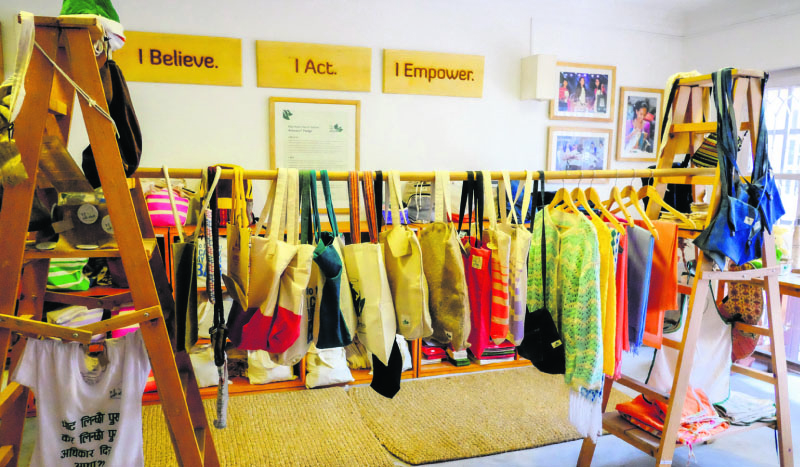

The social enterprise ‘Hamri Bahini – The Green Angels’ is not only working to protect the environment, it is also trying to give underprivileged women of Nepal a chance at decent living. Hamri Bahini under Himalayan Climate Initiative (HCI) was established three and half years ago and since then it has been involved in many projects for the betterment of the environment and society. Republica’s Prasansha Rimal talked to Bivishika Bhandari, head of outreach and marketing of HCI, to find out more about this noble cause.
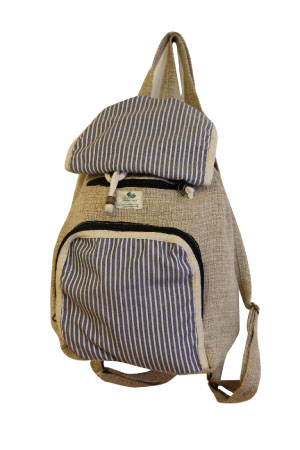
About Hamri Bahini
Hamri Bahini is a start-up under HCI that promotes products made by women entrepreneurs, which are green and eco-friendly. The products made by Hamri Bahini are all biodegradable which also promotes sustainable development. Through the bag enterprise of Hamri Bahini, women of marginalized community are not only getting employment but the community is also going green. “We not only make cotton bags but also work with jute, allo, hemp that are locally produced,” says Bhandari.
How to contribute
“We all know that prevention is better than cure so instead of thinking about ways to recycle in the first place, it would be better to reduce consumption,” says Bhandari. If you happen to buy more clothes, there are many ways to recycle the old ones. Bhandari says, “Recycling depends upon the types of products. Even at home we recycle clothes, knowingly or unknowingly. It’s not uncommon to find old clothes turned into a wash cloth, rug or a cushion cover which is one of the methods of recycling.” Bhandari further adds, “Old clothes can be even be used as stuffing for toys. Cloth pieces can even be used to make file folders and old saris can be turned into new dresses.” According to her, one also shouldn’t be ashamed to use hand-me-downs as this will automatically reduce consumption.
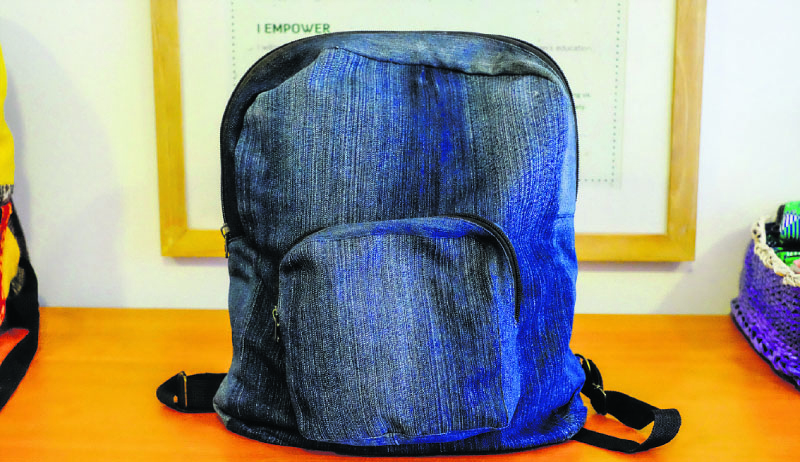
How they do it
Bivishika talks about an initiative of Hamri Bahini, where they make a new bag out of old jeans. “It is necessary to wash the jeans before you donate it to Hamri Bahini because in the end you don’t want a stained bag,” says Bhandari. “ Recycling at Hamri Bahini starts with a simple step of collecting old jeans and choosing a design,” she explains. All you need to recycle old jeans is a sewing machine and the skill to use it. The jeans is later stitched according to the design by sisters at Hamri Bahini and given a proper finish by adding a handle or a zipper according to the choice of the donor.
Things to keep in mind
“Make sure the clothes you donate is clean and check to see if it shrinks,” says Bhandari. If the cloth starts shrinking after the recycle process it will lose its value. “You will also need to check if the cloth you want to recycle fades because if it does, the chances are the cloth is already too old to turn it into something new,” she adds. You also need to be careful about how long the cloth will last which depends upon the material of the cloth. If the cloth is made up of a thin material then it won’t probably last for long. “You will also need to think about the utility of the cloth. For example, figure out how many times it can be used because you don’t want to turn it into something else and create more waste every time you reuse it,” she explains.
the people involved
Hamri Bahini currently has 2800 women under its network. HCI initially wanted to work for women empowerment and that was the main point behind establishing Hamri Bahini. “When we went on a search for women who could be involved in Hamri Bahini, we came across women who were trained by different non-profit organizations. We tried to bring those trained women together and teach them about techniques of making bags which Hamri Bahini is now famous for,” says Bhandari. Most of the sisters working here are from low-income families or have migrated to Kathmandu looking for better job opportunities. “Some of them are also the victim of trafficking,” adds Bhandari explaining that most of them are from marginalized communities. Besides, some women who are single or single parents also come and register themselves at
Hamri Bahini.
Challenges and future plans
“There were many non-profit organizations doing things like this so it was a challenge to come up with something that would set Hamri Bahini apart,” says Bhandari. According to her, working with a diverse group of women from troubled backgrounds who wanted a fresh start was also a huge challenge. “To stay in the business competing with other non-profit organizations is a challenge in itself,” she says.
Hamri Bahini is further planning to promote environment-friendly pesticides and organic products. “We are currently working in Kagati village which is infamous for child marriage. There, we are advocating for the empowerment of women entrepreneurs so they can sustain their lives,” says Bhandari. Hamri Bahini will be acting as the mediator for them to sell their products in Kathmandu. There is also another project going on under Hamri Bahini where they are working with freed Kamlari women.
You May Like This

Two including an Indian going to Madarbaba Mela killed
NAWALPARASI, Feb 8: Two people including an Indian national were killed in separate incidents here on Wednesday. ... Read More...
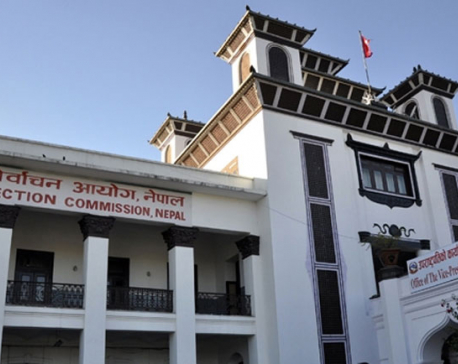
EC says voting going on smoothly from morning
KATHMANDU, May 14: Election Commission has said that the voting for local level election is going on smoothly in all... Read More...

Happy New You : Going sleeveless
Flaunt those toned arms Let me give you the good news first: Most women carry extra kilos in their midsection... Read More...

Just In
- Russia warns NATO nuclear facilities in Poland could become military target
- 16th Five Year Plan: Govt unveils 40 goals for prosperity (with full list)
- SC hearing on fake Bhutanese refugees case involving ex-deputy PM Rayamajhi today
- Clash erupts between police and agitating locals in Dhanusha, nine tear gas shells fired
- Abducted Mishra rescued after eight hours, six arrested
- Forest fire destroys 13 houses in Khotang
- First meeting of Nepal-China aid projects concludes
- Lungeli appointed as Minister for Labor and Transport in Madhesh province govt















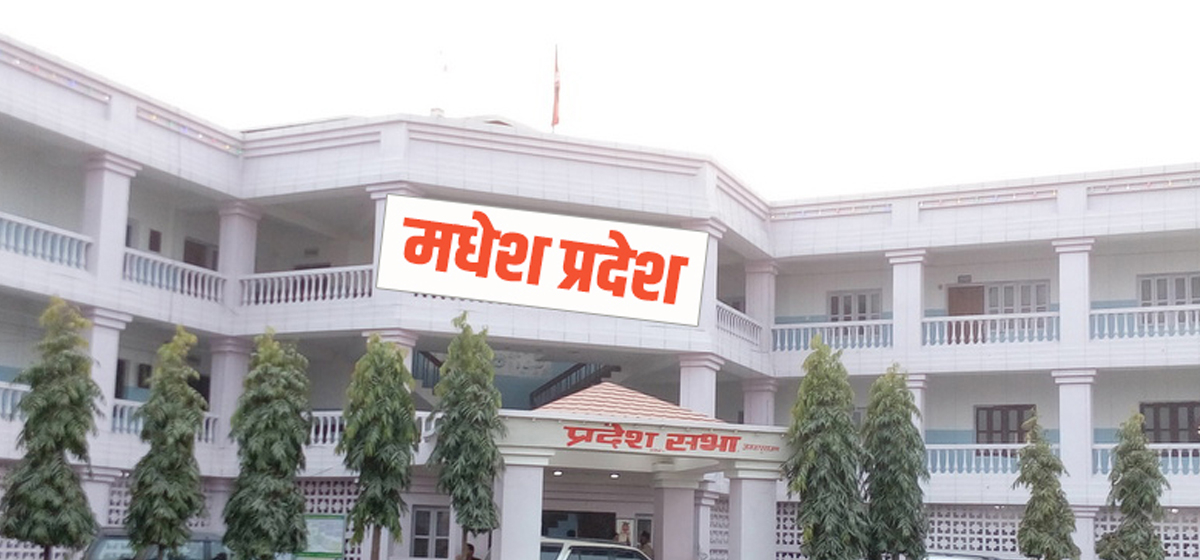
Leave A Comment